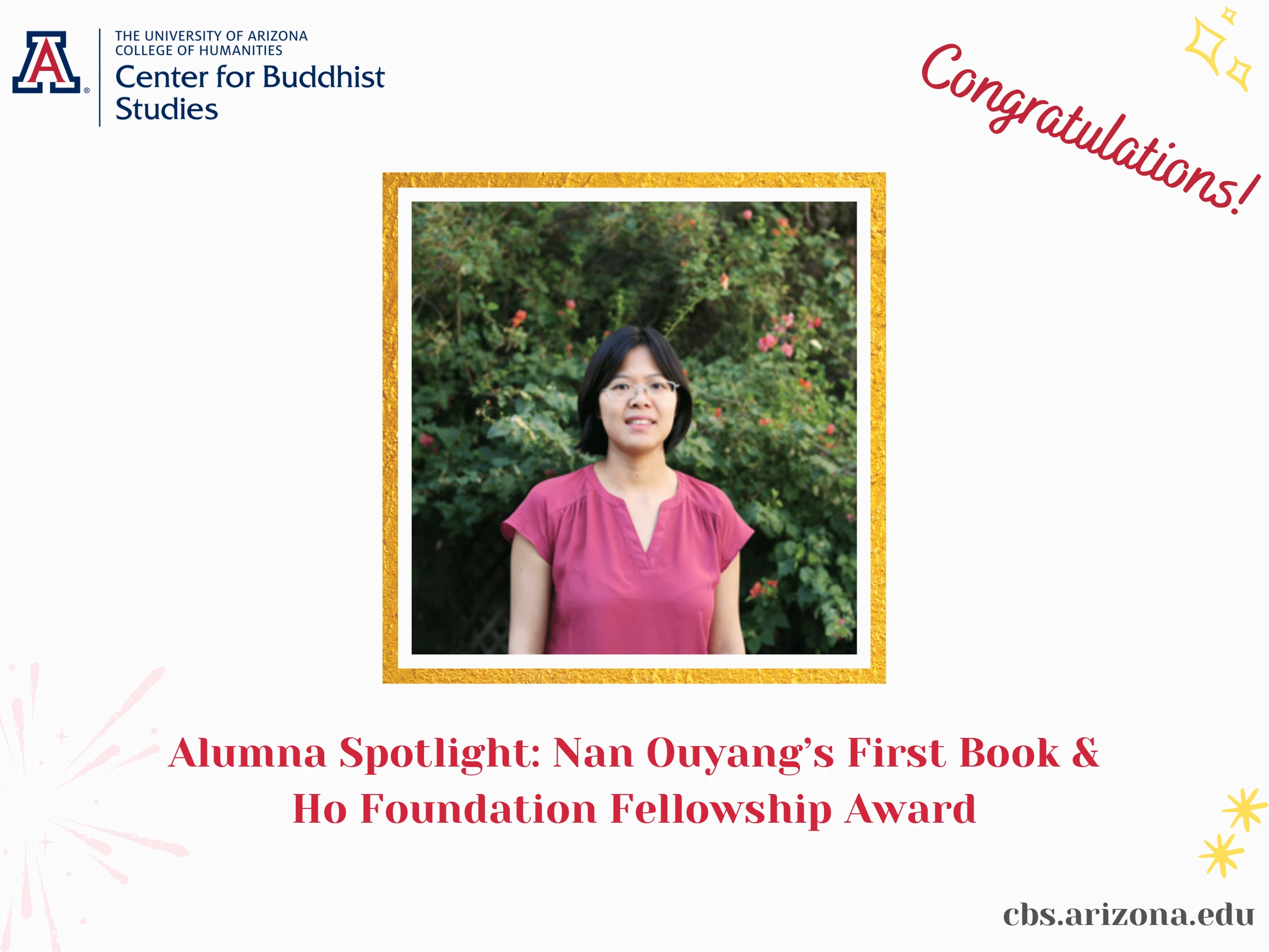
Nan Ouyang, a PhD alumna of the University of Arizona (Department of East Asian Studies and Center for Buddhist Studies), will publish her first book, Constructing the Divine Abode of Dizang Bodhisattva: Mount Jiuhua in Late Imperial China (14th to 20th century), with Brill this August (https://brill.com/display/title/71085?rskey=SJyech&result=1). Based on her doctoral dissertation, this book examines how Mount Jiuhua became the seat of Dizang Bodhisattva and evolved into a renowned Buddhist mountain during the late imperial period. By incorporating previously overlooked sources, such as inscriptions, amulets, drama scripts, and “underworld passes,” this study highlights the critical role of rank-and-file religious practitioners in the sacred place-making process.
She was the graduate assistant program coordinator of the Center for Buddhist Studies at the University of Arizona, and in 2019 she received the Khyentse Foundation Student Award and the Lingyin Buddhist Studies Best Graduate Research Paper Award.
She has also received the 2025–2026 Early Career Research Fellowship from the Robert H. N. Ho Family Foundation Program in Buddhist Studies for her new project, Buddhism “Revolutionized”: Monastic Life on Mount Jiuhua, 1949–1976, which examines grassroots state–religion dynamics on the renowned pilgrimage site of Mount Jiuhua during the Mao era.
Currently, she is an Adjunct Professor of Religious Studies at DePaul University. Her research interests include Buddhism in late imperial China, the modernization of Chinese religions, sacred space, pilgrimage studies, and digital humanities. Her work has appeared in the Journal of Chinese Religions, Journal of Chinese Buddhist Studies, and Modern China.

